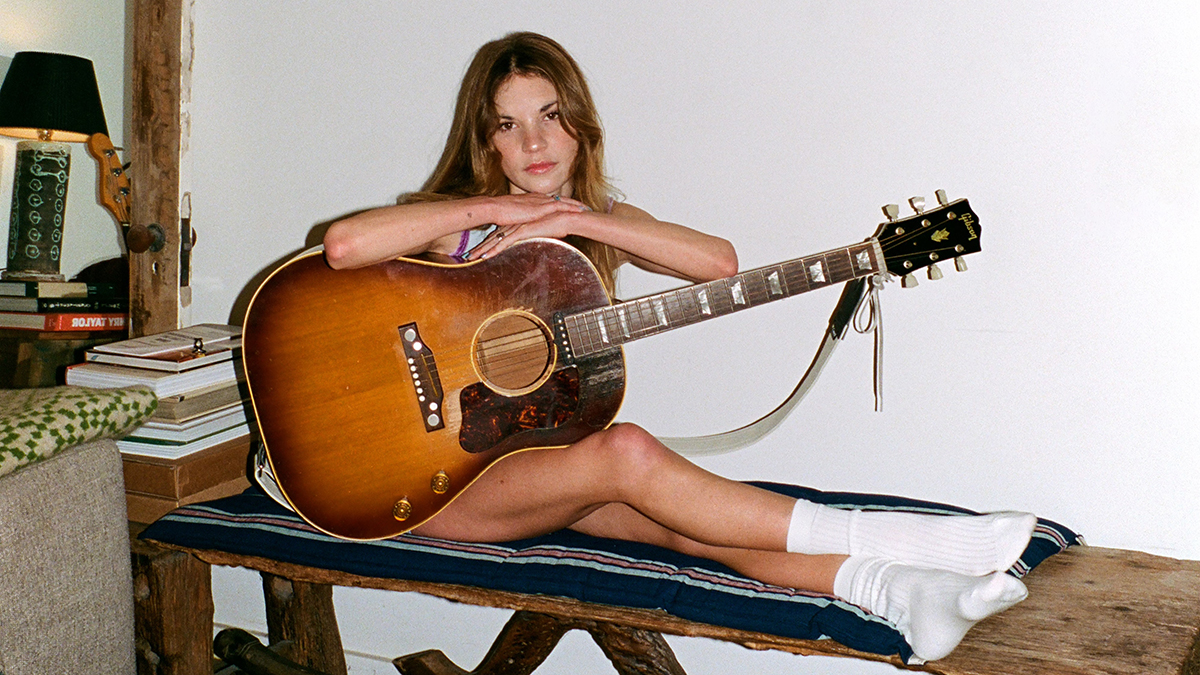“In the studio, I’ve had a few moments where men seem to be shocked if I know how to do a certain thing, like, ‘Comping my own vocal - yes, I can do that’”: Sabrina Carpenter songwriter Amy Allen on the challenges faced by women in the music industry
The Espresso and Manchild co-writer also says that she likes to “go off of emotion” rather than writing to a formula

Want all the hottest music and gear news, reviews, deals, features and more, direct to your inbox? Sign up here.
You are now subscribed
Your newsletter sign-up was successful
Songwriter Amy Allen is on quite the hot streak. She co-wrote every track on Sabrina Carpenter’s two recent hit albums, Short n’ Sweet and Man’s Best Friend, and also has a credit on Rosé and Bruno Mars’ Apt, a massive worldwide hit.
However, although it seems as if Allen has hit on a winning formula - one that earned her a Songwriter of the Year Grammy in 2025 and has her very much in the frame for the same award next year - she says that she doesn’t really think about the science of what makes a pop smash.
“I don't know much theory at all,” she tells Paper Magazine, but Allen is also happy to acknowledge that there are certain songwriting ‘rules’ that others follow and she also likes to keep in mind.
“In terms of math, I can tell there are certain tricks that songwriters pick up along the way,” she says. “When you listen to a Max Martin song, there are a lot of strategic moves that are happening so that the chorus feels massive. Every part to it feels like a building block that's moving up the ladder to the big climax.”
Considering her own output, Allen says: “I’m not really a music-mathy gal, but I do know that when I'm writing a pre-chorus or verse, I don't want the notes that I'm hitting in the pre-chorus or the verses to be walking all over the note that the chorus is going to hit. Then the chorus just doesn't feel as euphoric. Or if there's a certain line in the chorus that I really want to stand out … maybe don't want to be reiterating that same thought throughout the verse. You don't want to give too much away.”
Of course, when a song does become a hit, you’ll find dozens of ‘track breakdowns’ online that purport to tell you why, but Allen admits that, on most occasions, there was no real “mathy process” that was followed.
“A lot of my favourite songwriters just go off of emotion,” she says. “My favourite artists are the exact same way. They're really governed by how it feels in their body. I've always been that way, so that's where I stand on that. But I'm always in awe of people that are very mathy about music and can make a song that’s technically perfect.”
Want all the hottest music and gear news, reviews, deals, features and more, direct to your inbox? Sign up here.
Which isn’t to say that Allen is lacking in musical chops. As well as being a songwriter, she also sings, plays guitar/bass and produces, but like most women in the industry, she hasn’t always been given the respect she deserves.
“Most women have a shared experience being in music in general,” she says in another interview with Music Week. “I remember when I was touring, a lot of times guys would be running the sound, or if they were helping the stage setup, they’d be shocked if I knew how to plug in my setup or if I had my guitar in an alternate tuning. In the studio, I’ve had a few moments where men seem to be shocked if I know how to do a certain thing, like, ‘Comping my own vocal - yes, I can do that.’”
Frustrating, certainly, but Allen is diplomatic and philosophical about dealing with the men who underestimate her.
“I take them as they come, and each one can be a learning experience,” she says.

I’m the Deputy Editor of MusicRadar, having worked on the site since its launch in 2007. I previously spent eight years working on our sister magazine, Computer Music. I’ve been playing the piano, gigging in bands and failing to finish tracks at home for more than 30 years, 24 of which I’ve also spent writing about music and the ever-changing technology used to make it.
You must confirm your public display name before commenting
Please logout and then login again, you will then be prompted to enter your display name.

